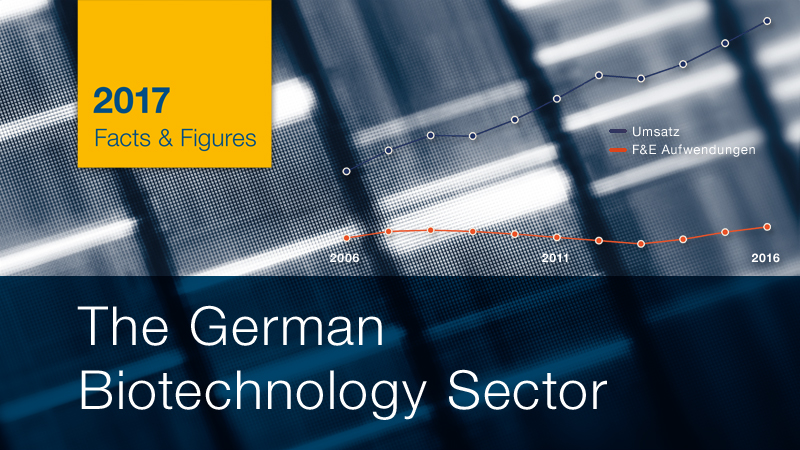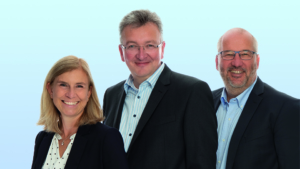
German biotech on the rise
The Biotechnology in Germany is a growth engine. According to a new report, all key figures such as employees, turnover and R&D expenditure were at an all-time high in 2016.
In terms of key economic factors, 2016 was the best year for the German biotech sector ever. According to the company survey, which Berlin-based information specialist BIOCOM AG conducts annually based on the biotech indicators of the organisation for economic cooperation and development (OECD) for more than ten years, the generated turnover of the German biotech sector for the third year exceeded €3bn. In 2016, total figures increased by 8% to €3.54bn compared to the year before.
Key figures with all-time high
Further upswing has been observed regarding spending on research and development (R&D). For the second time since 2010, the innovation budget cracked the one billion euro mark (+6.3%) and now stands at €1.1bn (2015: €1.04m). With a total of 20,280 (2015: 19,010), there were more employees than ever before working in biotech companies that are occupied wholly or predominantly with modern biotechnological methods. The total number of these companies rose to 615 (2015: 593). Thereby, the following figures and conclusions relate only to the dedicated’ biotechnology companies, as defined by the OECD.
Stable financing situation
The financial situation also mirrors a sustainable positive trend over the last years: in 2016, around €505m was invested in German biotech companies, which did not reach the record levels of 2015 (€550m), but still is a high amount of money compared to previous years. The majority of the money was spent in public companies (€258m, +5%). With bioeconomy pioneer BRAIN AG, the first biotech IPO since 2007 took place at the German stock exchange in Frankfurt. Total numbers of listed German biotech companies increased to 21. Among them are five firms that are listed on a foreign stock exchange. In 2016, Berlin-based Noxxon Pharma choose that way, too, and went public on Euronext in Paris.
Interest of big pharma and the crowd
A closer look into the financings of the private firms, which secured a total of €216m in 2016, reveals that despite overall lower levels (-17%) than in 2015, a lot of double-digit rounds were raised. Foreign investors participated in eight of the 21 private financing rounds, demonstrating that German companies are able to attract high levels of interest. In addition, two crowdfunding campaigns for biotech companies took place in 2016. Some major multimillion euros licensing deals, such as BioNTech with Genentech (€278m), or Medigene with Bluebird Bio (€917m), or Proteros with MSD (€157m), further support the theory that German firms are quite attractive from an international point of view.
Record employee numbers
There is sustained interest in biotechnological processes and services from big business. This is confirmed by a consistently high number of companies in which biotechnology represents only one aspect of business. In 2016, the category of other biotechnology-active companies’ comprised a total of 137 companies (2015: 133). These included both pharmaceutical and chemical companies focused on innovative biotechnological processes as well as companies from the areas of environment, waste management, energy and agriculture. In 2016, a total of 22,000 people were employed in the biotechnology-oriented areas of such companies. Compared to the previous year (2015: 20,250), this represents a growth of 8.6%. For the first time, total headcount in commercial biotechnology increased above the 40,000 mark to 42,280 (+7,7%).
For more information: click here


 Immunic/Nela Dorner
Immunic/Nela Dorner
